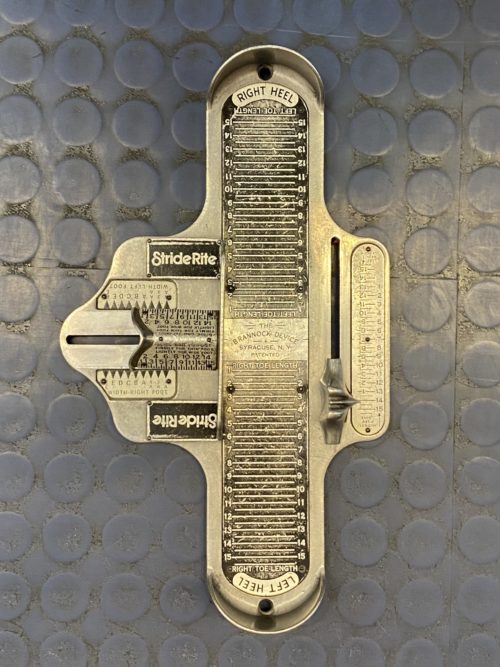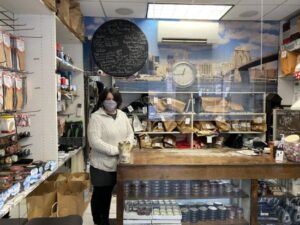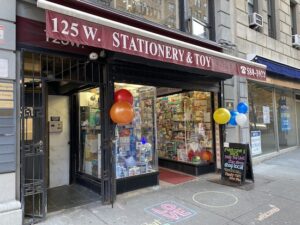Some people remember birthdays, some, notable dates in history. Robert Goldberg, 59, remembers shoe sizes. Lots of them. “It’s just one of those obscure things…shoe sizes stick in my head.”
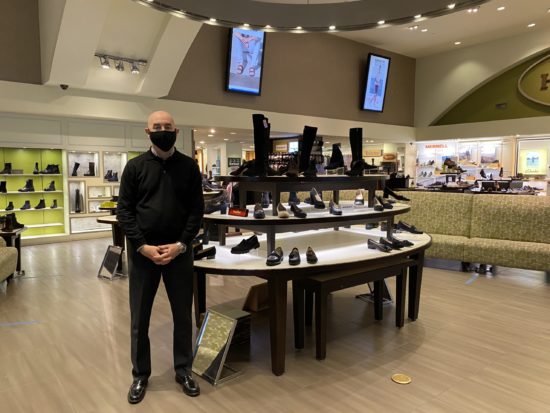
Little wonder. Goldberg (size 11 ½) is the third-generation owner of the venerable Upper West Side destination for sensible, quality footwear, Harry’s Shoes at 83rd and Broadway, and its more recent sibling, Harry’s Shoes for Kids just up the block. He has been at the helm of the operation since he and his second-in-command and sister, Randi Goldberg Wasserman (size 10 ½, narrow), took over from their father, Joe, son of the eponymous Harry, in 1987. Joe died in 2012.
“10 ½, double E.”
That’s long-time customer Al Franken who stops in at Harry’s when he needs something new to wrap around his unusually beamy feet.
“James Gandolfini [of Sopranos fame] wore a 13, wide,” Robert recalls. “I remember Rick Moranis used to wear a size 8 or 7 ½…Lauren Bacall, I believe, used to wear size 11.”

Goldberg’s grandfather, Harry, opened his first shoe shop in the 30s in the Bronx. Sensing opportunity and a welcoming neighborhood in which to raise his young children, his son Joe moved the business to Manhattan decades later. By 1975, the family store was on the UWS, having assumed the lease on a Florsheim Shoe franchise, housed in part of what makes up today’s 7,000 square feet of sales space. With a deferential nod to the past, Joe renamed the store Harry’s Florsheim, after his dad, a tag that stuck until the Florsheim connection dissolved in the 90’s.
Robert Goldberg recalls growing up as an Upper West Side kid. “I remember Needle Park and how Broadway was kind of dangerous after 9 o’clock at night.” He attended Stephen Gaynor School on West 90th Street and, on the weekends, he was part of an after-school and Saturday sports group called Shelly’s All Stars – the Town Shop’s Danny Koch’s brother was part of the team, as well. Goldberg remembers it fondly, especially the athletic shoes he had a chance to buy because of it. “The one that strikes me the most was my first pair of Puma Baskets. They were white leather with a black stripe on it, a black Puma icon.” And he bought them from his dad, right? Somewhat sheepishly he answers, no, at Paragon. His much loved coach, Shelly, sent all his players there.
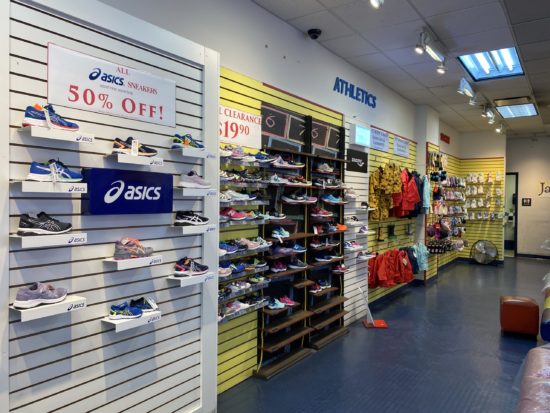
These days, one thing that Goldberg would like to forget about is COVID-19, and how it has taken his sales “off a cliff,” he says. He and his sister closed the store on March 22, but by the end of February, they could already see traffic and revenue plummeting. “People were less interested in shopping. What they were doing was watching the pandemic come on shore…and people started to become nervous. By the time we got into March, there was zero consumer activity, or close to zero.”
The store applied for – and received – a PPP (government) loan, which enabled Goldberg to keep his staff of 60-plus from filing for unemployment. But the bills didn’t stop and any income from the most important months of the early shoe sales season in New York City – from March to June – evaporated.
Harry’s reopened curbside in early June with a skeletal crew serving customers from a make-shift sales space, with chairs, tables and area rugs so customers could slip their own shoes off and try on others. “Key items like Birkenstocks were featured,” he explains. When the city gave the okay, the retail space opened its doors on June 22, with strict COVID entry requirements – hand sanitizer, masks, and social distancing protocols – that remain in place.
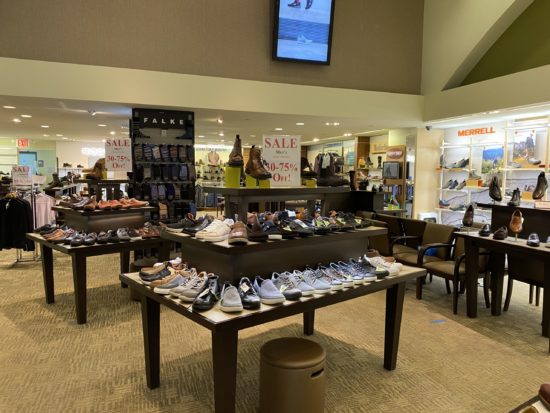
Today, inside Harry’s and Harry’s Kids, things remain uncharacteristically quiet. “It’s hard, very hard,” notes Goldberg. The sales staff remains at a minimum – “I have 40 of my staff that is still on furlough”– and typical bright spots like the recent snowstorms that historically prompt customers to come by for boots and such, have been significantly muted. “Boots are good when it’s snowing and you’re going somewhere, and you need to protect yourself against the elements…but no one is going anywhere!” he exclaims. One small, if not surprisingly, bright spot: slipper sales have become “a hot commodity.”
Goldberg has been in the business long enough to have weathered other serious threats to his brick-and-mortar emporium: discount shoe stores, like DSW which is nearby on Broadway; online outlets; direct-to-consumer marketing; and of course, the emergence of the omnipresent e-tail monster, Amazon. But nothing has compared to COVID.
“COVID has changed the rules,” he laments. “It has given an advantage to some of these platforms that go direct to consumer…and I think it has hastened the speed at which consumers are getting more comfortable being online.” Yet, he adds, optimistically, “I think it has [also] quickened the acknowledgement of consumers that shopping online is not very rewarding and is very one dimensional,” – a potential advantage for businesses like his that are all about service and quality and the human touch, and with footwear, the importance of trying something on.
As for the stress that has been brought on by the pandemic, Goldberg sighs deeply and says: “I have no words. I tell my wife that if you can handle this, you can handle anything. There is just so much unknown.”
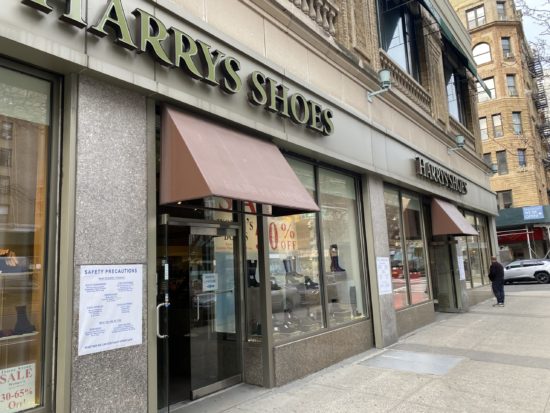
In the meantime, Goldberg has leaned heavily on his own exceptional business acumen and nationally recognized marketing savvy to move forward – he was given a Lifetime Achievement Award by Footwear Magazine a few years ago. But he gives a special shout out to his sister and staff. “I have a wonderful team…quite wonderful. We all really try to process and think it through.” He likens it to some of the conversations many are lucky enough to have had in college. “Remember when you wanted to get down to the nitty gritty of what the essence of a book was? Then you sat amongst your friends and you would talk about it? That’s a great process because you don’t miss much.” The same is true for the Harry’s Shoes team.
Goldberg also looks back to his father, whom he says, with affection, taught him everything and more. “The instincts, the evenings on the phone at 10 p.m. about the day’s events, the vendors, ways to learn about managing, about the industry, how to understand what you are seeing, marketing, advertising, building a brand.” The list goes on. Then Goldberg, the son, adds sweetly, “You have to remember, he was my best friend…he was the best man at my wedding. I dream about him every night.”
